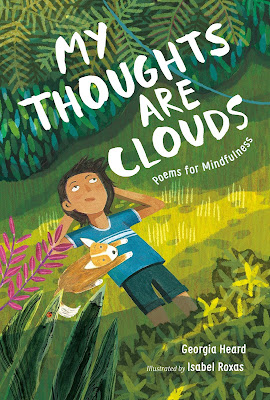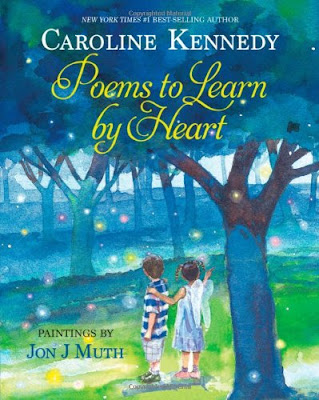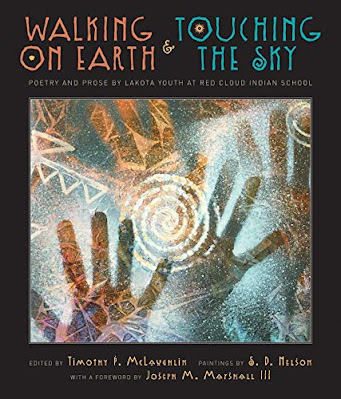Brown Girl Dreaming
Bibliography:
Woodson, Jacqueline. Brown Girl Dreaming. New York: Puffin Books, 2014. ISBN: 978-0147515827
Summary:
Brown Girl Dreaming is the breathtakingly tender verse memoir of Jacqueline Woodson’s childhood in Ohio, South Carolina, and New York in the 1960s and 70s. She recounts intimate family moments with vivid clarity against the backdrop of social change, tracing her journey to becoming a writer as she grows up between the North and the segregated South, mining deep truths from the rich soil of her life on topics such as family, faith, memory, tragedy, freedom, friendship, identity, courage, creativity, and revolution. The book begins with a diagram of her family tree and an epitaph from Langston Hughes. The 320 pages of poems are divided into five sections entitled, i am born; the stories of south carolina run like rivers; followed the sky’s mirrored constellation to freedom; deep in my heart, i do believe; and ready to change the world. The book ends with an author’s note and an album of family photos.
Analysis:
Have you ever read a book so brilliant that you wanted to bookmark every page and underline every word? Brown Girl Dreaming is that kind of book. Jacqueline Woodson is a master sense imagery so rich you can taste it. “Warm autumn night with the crickets crying / the smell of pine coming soft on the wind / and the women / on the porch, quilts across their laps…” She captures the nostalgic smells of the fresh Carolina air, the scent of burning hair from the hot comb on hair night, the taste of lemon chiffon ice cream with her grandfather, and the feeling of dewy grass under her bare feet as she sits on the front porch with her mother whose dark hands hold a cup of coffee sweetened with condensed milk. It’s these sensory details that evoke memories with such power that the reader cannot help but feel transported.
The voices of the people who inhabit Woodson’s childhood are written in italics, capturing the rhythm and music of the spoken language. Her grandfather comes down the road talking to everyone he meets: “Good evening, Miz Clara. Evening, Miz Mae. / How’s that leg, Miz Bell? What you cooking, Auntie Charlotte, you thinking / of making me something to eat?” Every person feels and sounds real, their voices distinct and clear.
Although most of the poems are written in unrhymed free verse, a numbered series of ten haikus entitled “how to listen” are interspersed throughout the memoir. These short poems carry as much impact as any others in the book: “Do you remember…? / someone’s always asking and / someone always does.” Each poem in the book is titled in bold, lower-case font, some with reoccurring, numbered titles which draw connections between the poems and enhance the memoir’s overall continuity.
From the first poem, Woodson locates the moment of her own birth in the context of American history: “I am born as the South explodes, / too many people too many years / enslaved, then emancipated / but not free…” This sense of historical significance remains strong throughout the memoir with allusions to Martin Luther King, Jr., Malcolm X, and Angela Davis, but the magic is how Woodson makes the struggle for civil rights tangible and personal. In a particularly haunting moment, Woodson uses simile to describe how the paint covering over the WHITE ONLY signs on the bathroom doors is so thin that “you can still see the words, right there / like a ghost standing in front / still keeping you out.” The residue of Jim Crow remains, and her grandmother finds it easier to sit at the back of the bus than “having white folks look at me like I’m dirt.” Jacqueline, who watches other passengers decide to sit at the front and dare anyone to challenge them, must choose for herself who she wants to be.
More than anything, she wants to be a writer. She discovers that stories pour out of her naturally, and that, though butterflies only live a short time, “on paper, things can live forever. / On paper, a butterfly / never dies.” Young writers will be inspired not only by her astonishing commitment to memory but also by her eagerness to grow into a writer ready to change the world.
Excerpt:
changes
Now the evenings are quiet with my mother gone
as though the night is listening
to the way we are counting the days. We know
even the feel of our grandmother’s brush
being pulled gently through our hair
will fast become a memory. Those Saturday evenings
at her kitchen table, the smell
of Dixie Peach hair grease,
the sizzle of the straightening comb,
the hiss of the iron
against damp, newly washed ribbons, all of this
may happen again, but in another place.
We sit on our grandparents’ porch,
shivering already against the coming winter,
and talk softly about Greenville summer,
how when we come back,
we’ll do all the stuff we always did,
Hear the same stories,
laugh at the same jokes, catch fireflies in the same
mason jars, promise each other
future summers that are as good as the past.
But we know we are lying
coming home will be different now.
This place called Greenville
this neighborhood called Nicholtown
will change some
and so will each of us.
Activity:
After reading the poem, invite students to close their eyes and think about a place that is special to them from when they were younger. Give them a minute to focus on what it felt like to be there. Ask these questions, pausing long enough for students to locate a sense memory.
“What do you see? What can you smell? What sounds do you hear? What sensations do you feel? What can you taste?” Ask students to open their eyes and write down the sensations they recalled. Share memories together and encourage students to develop their memory into a poem.




Comments
Post a Comment